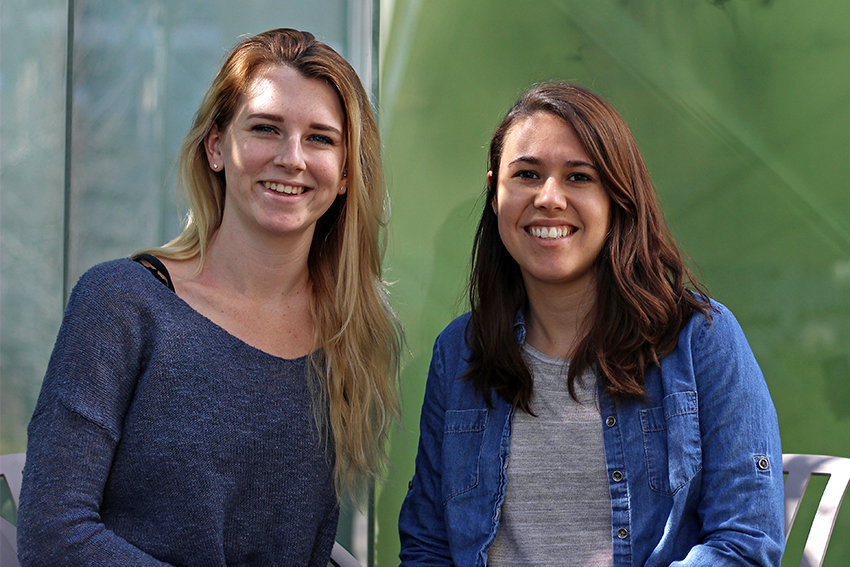Applying to the Peace Corps is almost like entering a beauty pageant. Potential volunteers must be intelligent, hardworking and have an earnest desire for world peace.
In spring 2016, to help students build confidence in their applications, Rebecca Law and Kacie Petrequin created Austin Students for Global Peace, a club specifically designed for students applying to the Peace Corps. They have attracted dozens of students interested in the volunteer organization.
“There’s Peace Corps clubs in other places but there’s not really a club for students to support each other,” Law, a linguistics senior, said. She said ASGP not only helps students learn more about the Peace Corps, but encourages and gives support to members throughout the
application process.
Law got the idea to form the club when she was working as an assistant in the UT Peace Corps Recruiting Office. Petrequin met Law while visiting the recruiting office and expressing an interest in forming a club. From there, they outlined exactly what they wanted from such an organization and fed off of each other’s enthusiasm. Rather than one person taking the role of “president,” Law and Petrequin opted for shared roles as Interal and
External Coordinators.
Some people are drawn to the Peace Corps because they want to travel or help alleviate humanitarian crises. Although Law wanted to do both, family history played a large role.
“My grandparents were some of the very first to go into the Peace Corps in the ‘60s,” said Law. She said she plans to teach English abroad with the Peace Corps.
Whereas Law had a life-long interest in joining the Corps, Petrequin was inspired to join later in life. After watching a recruitment video and talking to an officer, she immediately felt compelled to serve.
“I had no idea Peace Corps existed until I got to UT,” she said. “I went (to an info session) and it completely changed my life.”
Petrequin, a public health and sociology senior, said she intends to use her degrees to do health-related work in the field.
“I have interest serving anywhere in the world,” she said. “There’s no place I wouldn’t go to do this.”
Law and Petrequin design club meetings to be inspiring, informative platforms for discussion rather than simple meet-and-greets.
“We’re here to help be a place where students can collectively come for resources,” Petrequin said.
ASGP encourages students to commit themselves to longterm, recurring service rather than a weekend-long stint. This way, ASGP members get the opportunity to work with nonprofits like Refugee Services of Texas and Habitat for Humanity.
In addition to volunteering, the club frequently screens documentaries that focus on issues like poverty, which spark conversations about activism. Biology sophomore Samantha Kagel said one of her favorite aspects of the club is the dialogue members share with one another.
“It’s all in efforts to help our members map out the world they’re going to put themselves into when they serve as volunteers,” Petrequin said.
Members examine global issues and review what skills will be necessary to live abroad. Seasoned Peace Corps volunteers often act as guest speakers and answer questions about their experience.
Kagel, an officer in ASGP, first joined the club as a freshman and said the main reason she has stayed is because of
the people.
“Our club is great because we have people of all different grade levels and backgrounds,” Kagel said.





















